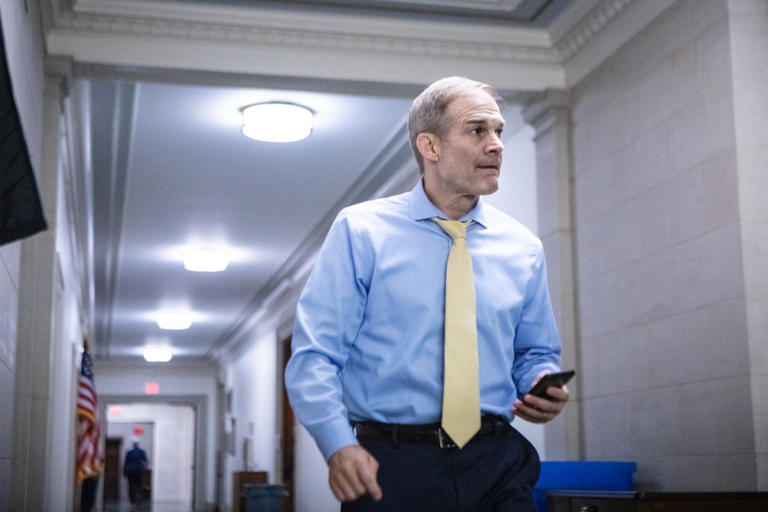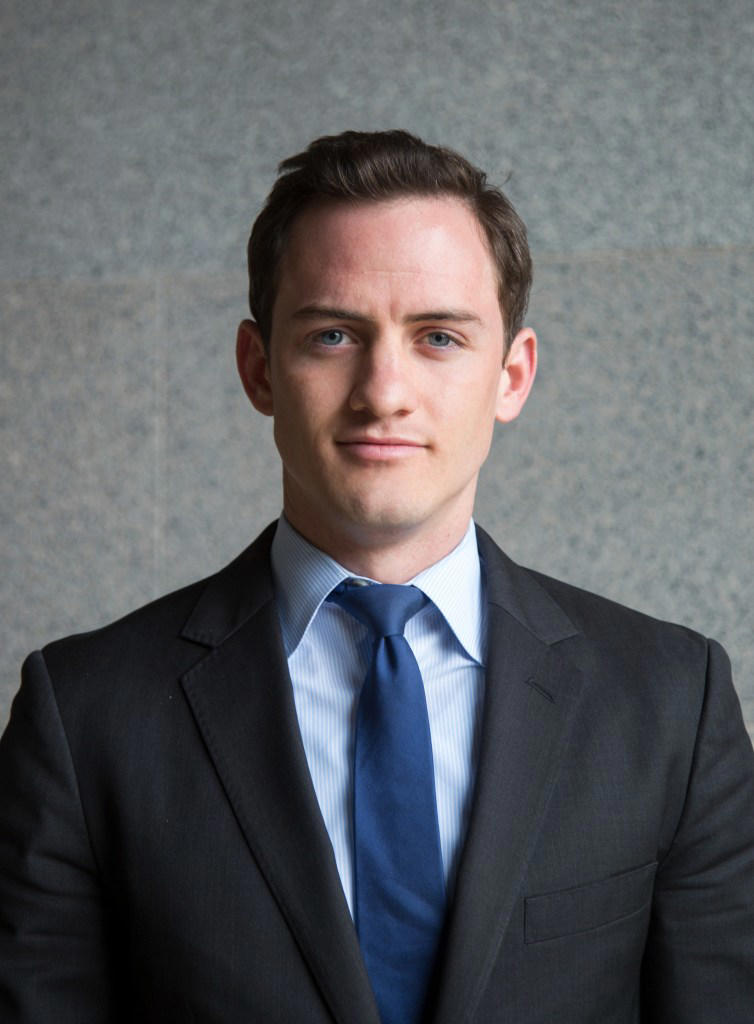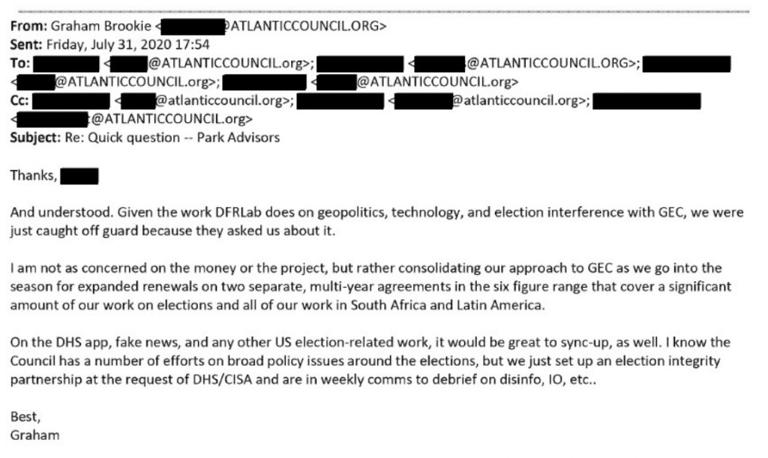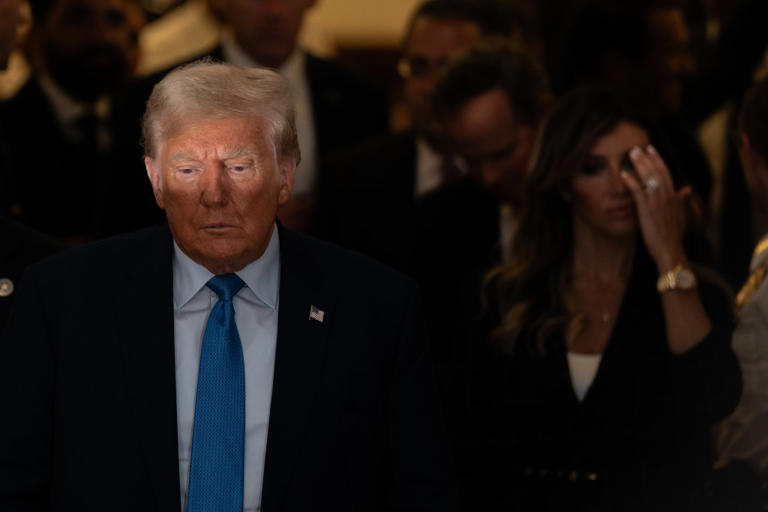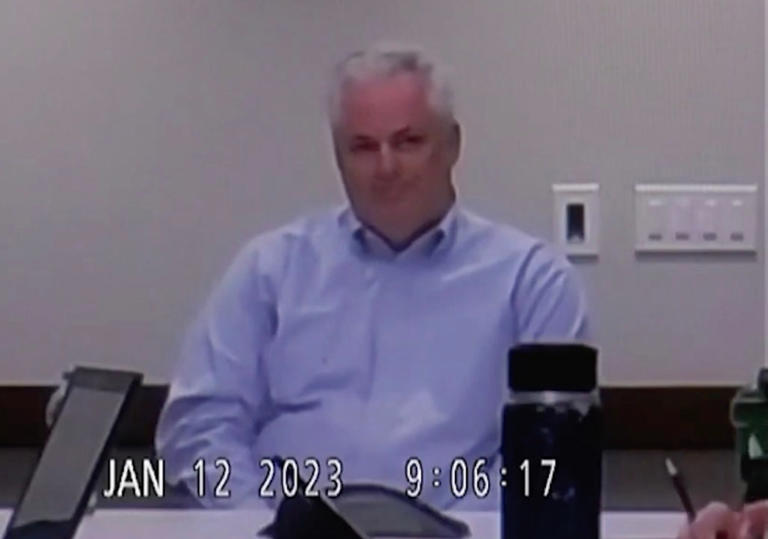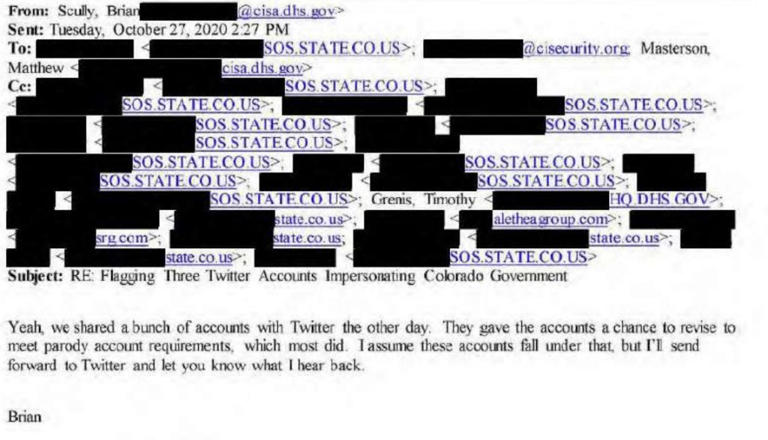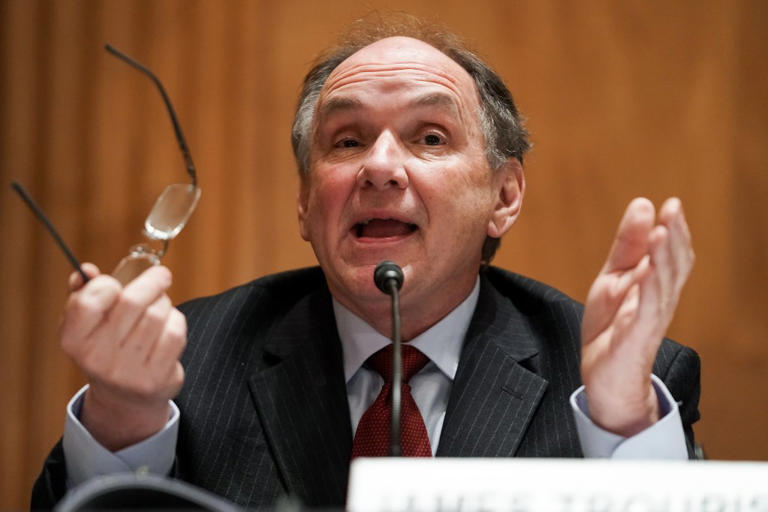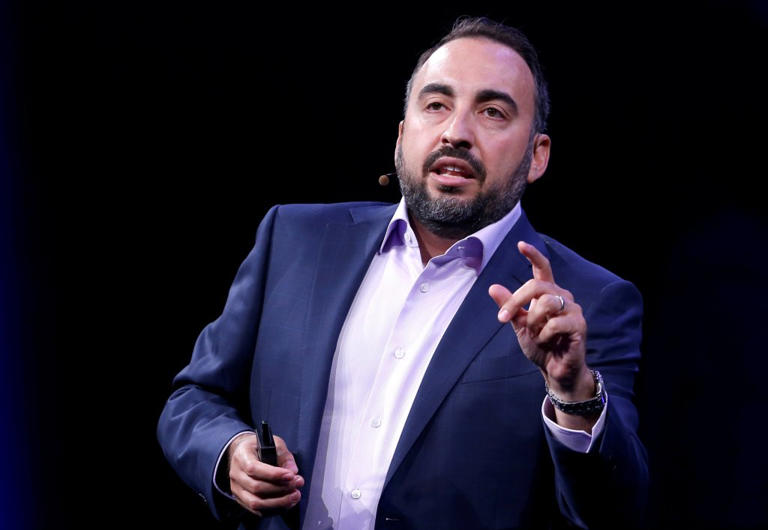Documents Reveal Biden WH Worked With Archives on Trump Case.
By Julie Kelly, RealClearInvestigations
May 2, 2024
Jack Smith, special counsel: Opposed releasing files on the handling of Trump’s documents case.
AP
Top Biden administration officials worked with the National Archives to develop Special Counsel Jack Smith’s case against Donald Trump involving the former president’s alleged mishandling of classified material, according to recently unsealed court documents in the case pending in southern Florida.
More than 300 pages of newly unredacted exhibits, containing emails and other correspondence related to the early stages of the hunt for presidential papers, challenge public statements by Joe Biden about what he knew and when he knew it regarding the case against his political rival.
Jonathan Su, White House lawyer: In regular touch with National Archives.
LinkedIn
The new disclosures indicate the Department of Justice was in touch with the National Archives and Records Administration (NARA) during much of 2021, undermining the DOJ’s claims that it became involved in the matter only after the Archives sent it a criminal referral on February 9, 2022, based on the findings of records with “classified markings” in 15 boxes of materials Trump gave to the Archives a month prior.
The court exhibits, which were compiled by Trump’s defense lawyers and kept under seal until last week, also show that Deputy White House Counsel Jonathan Su regularly communicated with Archive officials.
Although Biden himself is not mentioned in the exhibits, the active participation of Su and other high-ranking White House officials raises questions about whether Biden was forthright when he told “60 Minutes” he wasn’t involved in the investigation.
“I have not asked for the specifics of those documents,” Biden told Scott Pelley in the Sept. 17 broadcast, “because I don’t want to get myself in the middle of whether or not the Justice Department should move or not move on certain actions they could take. I agreed I would not tell them what to do and not, in fact, engage in telling them how to prosecute or not.”
Trump’s lawyers first filed the heavily redacted material in a January motion, under a standing protective order issued by the court to initially conceal potentially sensitive information. His team then asked U.S. District Court Judge Aileen Cannon, who is presiding over the matter in southern Florida, to remove many of those redactions based on her review.
Aileen Cannon, presiding judge: Unseal the files, she ruled..
Southern District of Florida/Wikimedia
A protracted battle ensued as Smith fought to keep large portions of the motion and accompanying exhibits from the public. Smith told Cannon that disclosing the material would jeopardize the investigation and expose potential witnesses and government employees to “significant and immediate risks of threats, intimidation, and harassment.”
But Cannon, arguing the need for public transparency, authorized the unsealing of the files, which were posted in mostly unredacted form on April 22. A comparison of the redacted and unredacted material shows the Archives acted in concert with several Biden administration agencies to build the case — coordination that included the DOJ, the Biden White House, and the intelligence community.
The Trump case prompted revelations that both Biden and former Vice President Mike Pence had also retained classified documents – in Biden’s case for decades, stretching back to his time in the Senate. But while the Archives’ outreach to Biden and Pence consisted of requests, the agency took a more assertive stance with Trump.
Gary Stern, National Archives lawyer: Some two dozen boxes of files missing.
National Archives
Within weeks of Trump’s leaving office in 2021, employees with Biden’s Office of Records Management and the Archives began coordinated demands to Trump’s transition team, including former Chief of Staff Mark Meadows.
Gary Stern, the Archives general counsel, noting “several conversations” with records office employees to discuss “concerns” about material in Trump’s possession, emailed Trump’s team in May 2021 and asked them to account for “roughly two dozen boxes of original Presidential records [that] have not been transferred to NARA.”
Stern did not specify the files the Archives wanted beyond “original correspondence between President Trump and North Korean Leader Kim Jung-un” and “the letter that President Obama left for President Trump on his first day in office.” An unsealed FBI report indicated the Archives also sought the so-called “Sharpiegate” map of Hurricane Dorian that the former president used during a 2018 televised briefing on the track of the storm.
Despite Trump’s cooperation, David Ferriero, the national archivist appointed by Barack Obama in 2009, warned the transition team a month later in June 2021 that he was running “out of patience.”
Before-and-after illustration 1: Unredactions on the National Archives’ early and aggressive focus.
Southern District of Florida
By August 2021, Ferriero and Stern were in contact with DOJ officials and at least one White House attorney to develop what initially appeared to be a records destruction case against Trump. According to White House visitor logs, Stern met with Su on August 12 at the White House.
David Ferriero, national archivist: In touch with Justice Department.
National Archives and Records Administration/Wikimedia
From that point on, the collaboration between the White House and Archives accelerated. On Aug. 30, 2021, Ferriero, making unfounded accusations that 24 boxes of materials were missing, warned Trump’s team, “At this point, I am assuming [the boxes] have been destroyed. In which case, I am obligated to report it to the Hill, the DOJ, and the White House.”
A Trump staffer whose name remains redacted responded, “To my knowledge, nothing has been destroyed.”
The archives, with apparent guidance from top White House lawyers, pressed forward. On Sept. 1, Stern sent an email to Ferriero and deputy archivist Debra Wall with the subject line, “Draft Letter to AG re Missing Trump Records.” In the Sept. 1, 2021 email, Stern disclosed that he already had “reached out to DOJ counsel about this issue,” and that “WH Counsel is now aware of the issue.”
An attachment to the email included a draft letter from Ferriero to Attorney General Merrick Garland to notify him that presidential records “may have been unlawfully removed from U.S. government custody or possibly destroyed.”
On Sept. 2, presumably with the draft letter in hand, Ferriero met with White House Counsel Dana Remus in her office, according to visitor logs. The draft letter was not sent as the Archives and White House continued to advance the case behind the scenes.
.Before-and-after illustration 2: Unredactions suggest early coordination with the White House and DOJ.
Southern District of Florida
On Sept. 9, 2021, both Ferriero and Stern met again with Remus and possibly White House Chief of Staff Ron Klain. (A Sept. 8, 2021, email from Stern referred to a meeting beforehand with “Ron and Dana,” possibly referencing Klain.) The same email indicated plans to also meet with Su.
Dana Remus, White House counsel: Met with national achivist Ferriero in her office.
White House/Wikipedia
An Oct. 2021 letter to Ferriero from Remus referred to a “notification on September 8” related to the January 6 Select Committee’s request for Trump’s records. In the letter, Remus denied Trump’s claims of privilege in preventing the committee from early access to his papers.
But the email chains do not reflect any mention of the January 6 Committee’s demands; to the contrary, emails between the White House and Archives repeatedly reference the “Trump boxes.”
In fact, a Sept. 15 email disclosed that Stern spoke to Su to “get him up to speed on the issue and the dispute whether there are 12 or 24 missing boxes.” A few weeks later, Stern told his colleagues that “WHCO [White House counsel] is ready to set up a call to discuss the Trump boxes.”
Before-and-after illustration 3: Unredactions on cooperation between the Archives and White House counsel.
Southern District of Florida
On Jan. 18, 2022, following roughly seven months of negotiations, Trump’s team delivered 15 boxes to the Archives. In a matter of hours, the Archives’ White House liaison director said he conducted what he described in an email to Ferriero, Wall, and three undisclosed recipients as a “high level overview” of the contents.
Lisa Monaco, deputy attorney general: “Instructed” National Archives lawyer Stern on how to proceed.
Department of Justice
While admitting that most of the material consisted of “newspapers, magazines, and printed news articles,” the official claimed the boxes contained “lots of classified records.”
That assessment triggered deeper involvement by the DOJ. An unsealed FBI interview with an Archives official indicated that on Jan. 22 Su directed Stern to contact the office of Lisa Monaco, the current deputy attorney general and a longtime former adviser to Obama, to lay the groundwork for a criminal referral. It would represent the first time the Archives had ever sent a referral to the DOJ asking for an investigation into the retention of classified records.
Two days later, Monaco’s office “instructed” Stern on how to proceed. For guidance as to how a criminal investigation would proceed, two Monaco associates told Stern to notify the inspectors general for both the Archives and the intelligence community as well as DOJ National Security Division Chief Jay Bratt, now the lead prosecutor for Jack Smith in the classified documents case, and the chief of the DOJ’s public integrity unit.
According to the unredacted defense motion, Stern followed the DOJ’s guidance and sent information about the 15 boxes to the Archives’ inspector general, who then notified the intelligence community’s inspector general about a “very high level potential spillage and records management issue.”
The email chain then made its way to Thomas Windom, a prosecutor now tasked to Smith’s team on the Jan. 6 case against Trump, on Feb. 1. A criminal referral was officially sent to the DOJ on Feb. 9.
Two months after the archives received Trump’s boxes, which he produced voluntarily, the FBI opened on March 30, 2022, what it named the “Plasmic Echo” investigation, according to an unsealed FBI document. The probe centered on the “mishandling of classified or national defense information.”
Before-and-after illustration 4: Unredactions on top-level DOJ involvement before receiving criminal referral.
Southern District of Florida
A grand jury and the FBI summoned Mar-a-Lago employees to testify. In May 2022, at the same time Biden officials were scouring Biden-related locations including the Penn-Biden Center in Washington for classified documents in advance of a potential GOP investigation into the same matter if Republicans won the House, the DOJ issued a subpoena for more classified records.
Not satisfied with the result – that Trump’s lawyers produced 38 more files to investigators in June 2022 – Garland authorized and the FBI executed a nine-hour raid of Mar-a-Lago in August 2022. After seizing more than 13,000 pieces of evidence, prosecutors claimed agents found another 102 records with classified markings.
In June 2023, Smith, appointed in November 2022 to take over the existing investigation, charged Trump with 32 counts of “willfully” retaining national defense information, representing a shift from the premise of the original investigation into more serious Espionage Act crimes. (Visitor logs show that Stern met with Biden’s special counsel Richard Sauber at the White House the day before Smith announced the indictment.)
Smith has also indicted Waltine Nauta, Trump’s personal aide, with obstruction, for moving boxes within Mar-a-Lago in an alleged attempt to conceal materials from investigators, and another Mar-a-Lago employee, Carlos DeOlivera, for allegedly attempting to erase security video at the property. All have pleaded not guilty.
Another Special Counsel, Robert Hur, was subsequently named to investigate Biden’s retention of classified material, dating as far back as 1977. Although Hur reported that Biden had willfully retained state secrets in unsecured locations and illegally shared them with a ghostwriter, he concluded that Biden should not be prosecuted for these violations.
Trump and his co-defendants have filed motions to dismiss based on selective and vindictive prosecution; Cannon has not yet ruled on those motions.
A May 2024 trial date in Florida has been postponed in light of Trump’s other legal entanglements, which the former president has described as a partisan witch hunt to interfere in the 2024 election.























